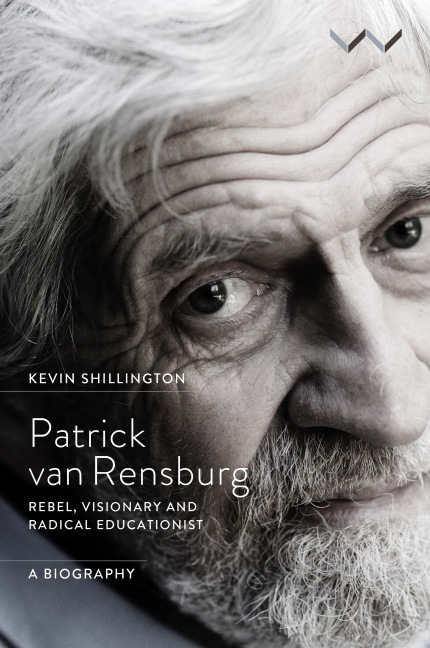Book contents
- Frontmatter
- Dedication
- Contents
- Acknowledgements
- Abbreviations and Acronyms
- List of Illustrations
- Maps
- Introduction
- 1 Origins and Identity in South Africa
- 2 An Anglophone South African, 1936–1948
- 3 The Making of an Afrikaner, 1949–1953
- 4 Diplomat and Rebel, 1953–1957
- 5 Anti-Apartheid Activist, 1957–1959
- 6 Boycott, 1959–1960
- 7 Into Exile, 1960–1961
- 8 Return to Africa, 1961–1962
- 9 The Founding of Swaneng Hill School, 1962–1963
- 10 Challenging ‘The Ladder to Privilege’, 1963–1965
- 11 The Alternative Educationist, 1965–1967
- 12 Expansion and Replication, 1967–1969
- 13 Time of Crisis, 1969–1971
- 14 Education with Production, the 1970s
- 15 Foundation for Education with Production and Spreading the Word, the 1980s
- 16 Education with Production and South Africa, the 1990s
- 17 Return to Botswana
- Epilogue
- Notes
- Bibliography
- Index
12 - Expansion and Replication, 1967–1969
Published online by Cambridge University Press: 10 September 2020
- Frontmatter
- Dedication
- Contents
- Acknowledgements
- Abbreviations and Acronyms
- List of Illustrations
- Maps
- Introduction
- 1 Origins and Identity in South Africa
- 2 An Anglophone South African, 1936–1948
- 3 The Making of an Afrikaner, 1949–1953
- 4 Diplomat and Rebel, 1953–1957
- 5 Anti-Apartheid Activist, 1957–1959
- 6 Boycott, 1959–1960
- 7 Into Exile, 1960–1961
- 8 Return to Africa, 1961–1962
- 9 The Founding of Swaneng Hill School, 1962–1963
- 10 Challenging ‘The Ladder to Privilege’, 1963–1965
- 11 The Alternative Educationist, 1965–1967
- 12 Expansion and Replication, 1967–1969
- 13 Time of Crisis, 1969–1971
- 14 Education with Production, the 1970s
- 15 Foundation for Education with Production and Spreading the Word, the 1980s
- 16 Education with Production and South Africa, the 1990s
- 17 Return to Botswana
- Epilogue
- Notes
- Bibliography
- Index
Summary
Patrick, Liz and the two boys left for Europe in early December 1966, spending time in the UK with Liz's family and numerous friends and supporters. Patrick did the rounds of his various sponsors, providing them with accounts of how their money had been spent and, inevitably, asking for continued support. While he was in the UK Robert Oakeshott sent him ‘a full spelling out of an enlarged development brigade with fully detailed costings etc’.
The part Robert was most proud of was the Farming Brigade. He thought it ‘a grand project’. Eustace Clark liked it, as did Mr Atkinson at the Department of Agriculture. ‘If you can get some backing for it,’ he wrote in a covering letter, ‘then the whole labour will have been immensely worthwhile.’
In the new year of 1967 Patrick left for a month's lecture tour of Scandinavia. In Sweden he was looked after by Sven Hamrell and Olle Nordberg, Sven's close associate at the Nordic Africa Institute. Sven, who was soon to take over the directorship of the Dag Hammarskjöld Foundation (DHF), was looking for suitable projects to support. The foundation had been founded in March 1962 in memory of the second UN secretary- general, who had died in a controversial plane crash in September 1961 while on a peace mission to the Congo. Meanwhile, Patrick had organised a tight schedule of meetings – lectures, interviews, dinners, lunches – in all the Nordic countries.
In Denmark Patrick met H. E. Kastoft, head of the new Danish International Development Agency (Danida). Kastoft liked Robert's brigade-expansion plan and made some constructive comments about the new Development Studies syllabus. Danida went on to become a major funder of the brigades in Serowe.
In Finland Patrick was looked after by Martti Ahtisaari of the Finnish Development Agency and in Norway he met up again with Cato Aal and several of his previous contacts there. Some of those who attended his lectures knew of Patrick's anti-apartheid past, probably through Guilty Land, and this had attracted their attention. He remembers it as a daunting time:
I was on new ground now and felt diffident about so strongly challenging fixed ideas and practices in education, and the vested interests they served, but exhilarated and stimulated too, perhaps, because people of influence and authority in several countries listened very carefully to what I had to say, and found it meaningful.
- Type
- Chapter
- Information
- Patrick van RensburgRebel, Visionary and Radical Educationist, a Biography, pp. 183 - 202Publisher: Wits University PressPrint publication year: 2020



